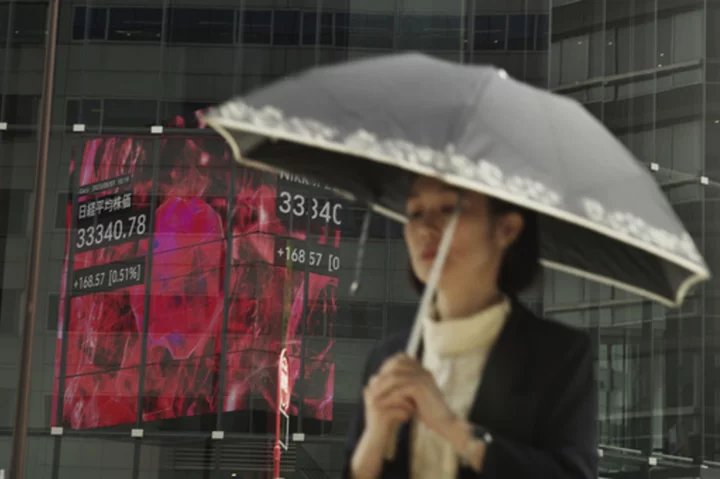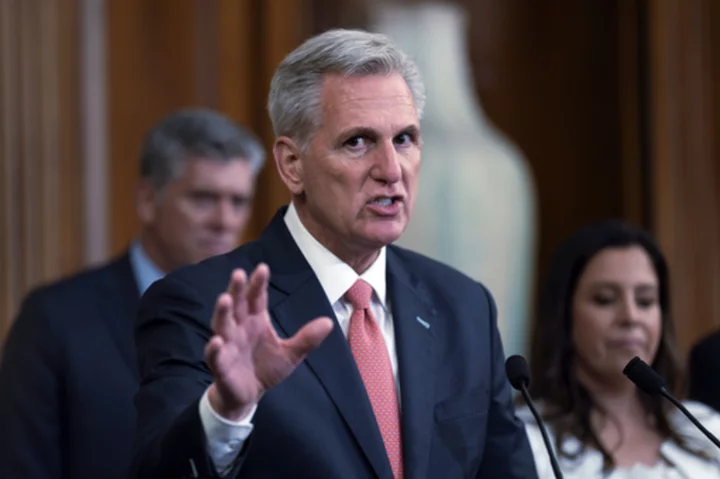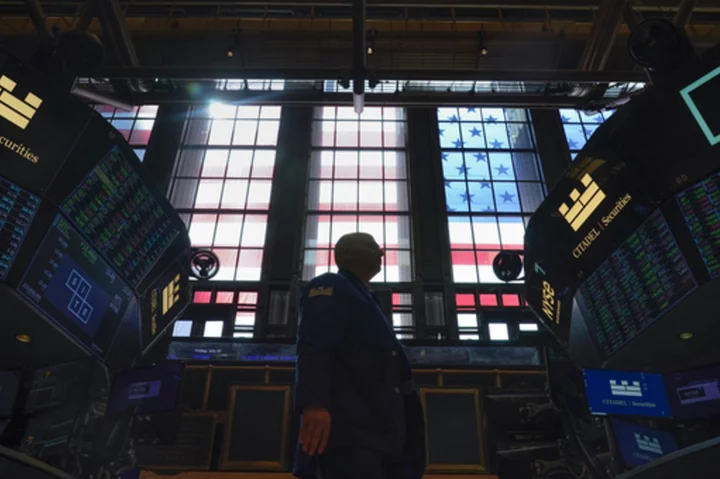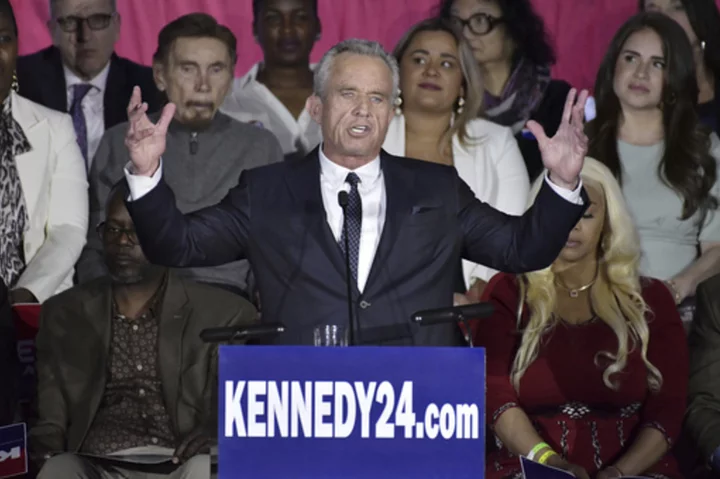TOKYO (AP) — Global shares were trading mixed Tuesday, as market optimism set off by a Wall Street rally was balanced by lingering worries about inflation and regional growth.
France's CAC 40 shed 0.1% to 7,487.17 in early trading, while Germany's DAX fell 0.2% to 16,408.78. Britain's FTSE 100 inched up less than 0.1% to 7,701.80. U.S. shares were set to drift lower with Dow futures down nearly 0.1% at 35,662.00. S&P 500 futures fell less than 0.1% to 4,611.25.
Investors were also watching for the policy decision by the Reserve Bank of Australia, which kept its rates steady.
“With the RBA keen not to overdo the tightening, it seems unnecessary to hike today when in all likelihood the macro signals for hiking will look much stronger at the September meeting,” said Robert Carnell, Asia-Pacific regional head of research.
Japan's Nikkei 225 rose 0.9% to finish at 33,476.58. Australia's S&P/ASX 200 gained 0.5% to 7,450.70. South Korea's Kospi jumped 1.3% to 2,667.07. Hong Kong's Hang Seng edged down 0.4% to 20,008.82, while the Shanghai Composite was virtually unchanged at 3,290.95.
The Japanese government released the nation's unemployment rate for June, which inched down 0.1 percentage point to 2.5%.
Several reports in the coming week could poke holes in the theory that inflation will keep coming down enough for the U.S. Federal Reserve not only to stop hiking interest rates, but to begin cutting them by early next year.
Big names in the market, such as Rob Arnott at Research Affiliates, are warning not to be “overly hasty in popping the champagne corks.” Arnott sees the possibility of inflation rebounding again later this year, even though it's recently cooled considerably.
Fed Chair Jerome Powell has pointed to Friday’s upcoming report on the overall United States job market as an important data point. Growth needs to be strong enough to keep a lid on worries about a possible recession. But a reading that’s too hot could also mean upward pressure on inflation, which could push the Fed to get more aggressive about rates.
High rates undercut inflation by slowing the overall economy and dragging on prices for stocks and other investments. The Fed has already hiked its main rate to its highest level in more than two decades, a jolting shock after the rate began last year at virtually zero.
Two of Wall Street’s most influential stocks are also set to report their earnings for the spring: Amazon and Apple are both scheduled to release their latest quarterly results on Thursday. Because they’re two of the most massive stocks on Wall Street, their stock movements pack much more punch for the S&P 500 and other indexes than other stocks.
Both stocks have soared this year, in part on expectations for strong continued growth, and they’ll need to deliver to justify the big moves. Both Apple and Amazon are up more than 50% so far this year.
In energy trading, benchmark U.S. crude lost 50 cents to $81.30 a barrel. Brent crude, the international standard, rose 57 cents to $85.56 a barrel.
In currency trading, the U.S. dollar edged up to 142.69 Japanese yen from 142.24 yen. The euro cost $1.0975, down from $1.0993.
___
AP Business Writer Stan Choe contributed from New York.









